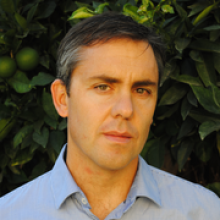MAE Seminar: Using Fundamental Modeling to Explain the Plastic Behavior of BCC Single-Crystals

Abstract: The plastic behavior of BCC single crystals is governed by screw dislocation glide on close-packed crystallographic planes. Screw dislocation motion occurs via thermally-activated nucleation and relaxation of so-called kink pairs on a periodic energy substrate known as the Peierls potential. A longstanding puzzle regarding BCC plasticity has been the discrepancy between the measured values of the yield and flow stress in tensile deformation tests and the calculated values of the Peierls stress at the atomistic scale. Here, we present a model that unifies both concepts and provides a justification for the differences in terms of the non-Schmid behavior displayed by BCC crystals. Our model consists of a crystal plasticity microstructural engine parameterized entirely using atomistic calculations, that includes full non-Schmid effects as well as a physically-consistent flow rule constructed on the basis of thermally activated screw dislocation glide. We apply the methodology to yielding in tungsten and show that available experimental measurements can be explained and reproduced by accounting for these two very important features of BCC plasticity. The validated methodology is used to predict the strength as a function of several state variables in W single crystals.
Bio: Jaime Marian is an associate professor in the Departments of Materials Science and Mechanical and Aerospace Engineering at the University of California Los Angeles (UCLA). His main research focus is the computational modeling of the mechanics and thermodynamics of advanced materials for energy. He spent nine years at Lawrence Livermore National Laboratory as a staff scientist developing methods to predict materials behavior under extreme irradiation, loading and temperature conditions. Marian is a recipient of DOE’s Early Career Research Award and has published over 80 peer-reviewed articles in the fields of nuclear materials, plasticity, simulation algorithm development and fusion energy. He received a Ph.D. in nuclear engineering and materials science at UC Berkeley, and was a postdoctoral scholar at the California Institute of Technology, where he worked on spall failure in metals using computational mechanics.
Share
Upcoming Events
-
MSE 298 Seminar: Molecular Modeling in the Age of AI - From Energy Materials to Device Simulations
-
MAE 298 SEMINAR: Europa Clipper Mission Design
-
CBE 298 Seminar: Metal Electrodeposition for Modern Mineral Refining
-
MSE 298 Seminar: Quasi-1D/2D Charge-Density-Wave Materials - From Exotic Physics to Application Prospects
-
EECS Seminar: Steering Diffusion Models for Generative AI, From Multimodal Priors to Test-Time Scaling
